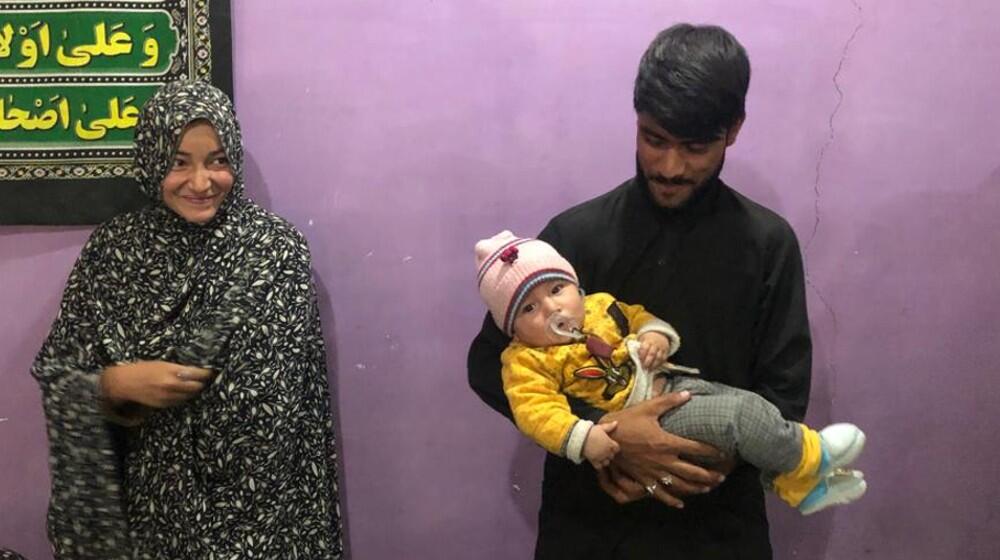The "Sihaat Mand Khaandaan (SMK) Project: Healthy Families for Pakistan Through Accelerating Sexual Reproductive Health (SRH) and Family Planning (FP) Services (2020-2024)" aims to enhance the reproductive health and rights of women, adolescents, and youth in areas with poor reproductive health indicators. The project seeks to empower them to exercise their reproductive rights without coercion, discrimination, or violence.
It focuses on advancing Sexual and Reproductive Health and Rights (SRHR) by providing access to safe, effective, affordable family planning methods and appropriate healthcare services for safe pregnancies and childbirth. This initiative aligns with Pakistan's priorities, Sustainable Development Goals (especially SDGs 3 and 5), FP 2030 goals, Council of Common Interests recommendations on population dynamics and family planning, and the National Youth Development Programme. It was developed in consultation with national and provincial stakeholders, endorsed by relevant government bodies, spanning from 2019 to 2024.
Introducing Zaib un Nisa: a Pillar of maternal and child healthcare in Shigar

Supported by the Government of Canada-funded Sihaat Mand Khaandaan (SMK) Project, Zaib underwent a transformative 10-day clinical attachment in Skardu's health facilities. The project has provided her with continuous supervisory support and on-the-job mentorship to further enhance her skills and expertise. Essential medical equipment, including a stethoscope, sphygmomanometer, sterile pressure cooker, adult scale, and examination light, has also been provided, ensuring the highest quality of care.
In June 2022, Zaib underwent a 5-day clinical attachment with an experienced Lady Health Visitor, further refining her proficiency in maternal and child healthcare.
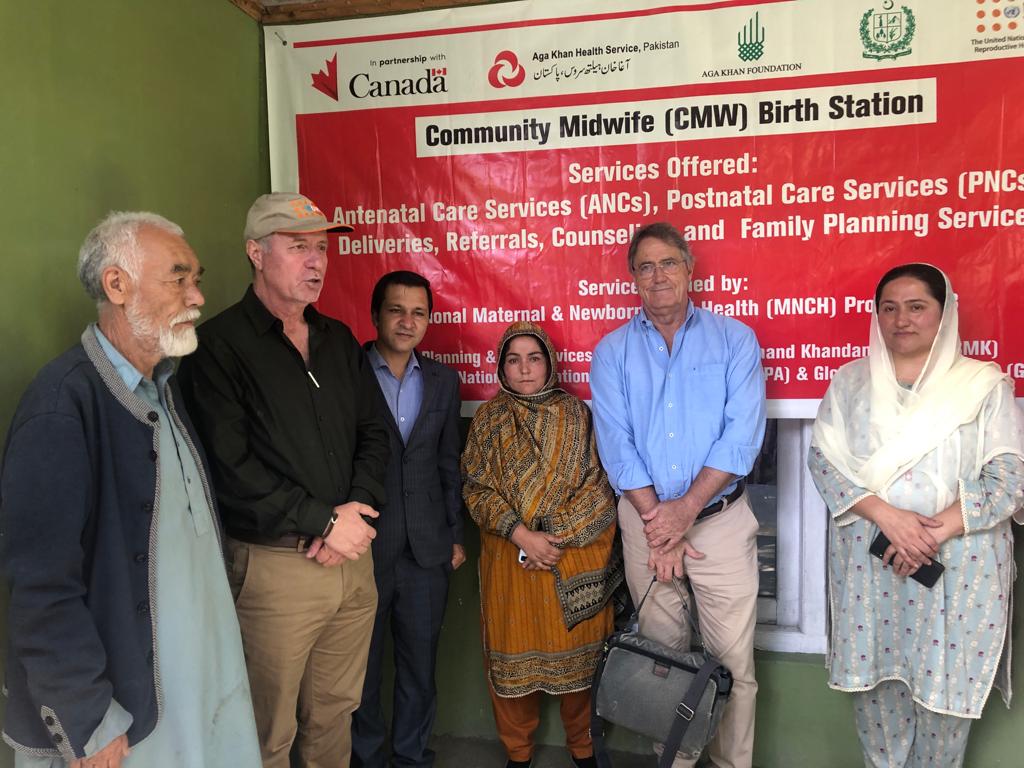
Zaib's dedicated community midwife space, generously provided by her father, has functioned as a vital clinic for the past 12 years. This provision has been indispensable as the CMW lacked adequate space at her own residence. During this time, she has tirelessly assisted in approximately three to four deliveries each month and has been instrumental in identifying and promptly referring cases involving high-risk or complicated pregnancies to the Regional Health Center (RHC) Shigar.
Going beyond her clinical duties, Zaib actively engages with her community by conducting regular Antenatal Care (ANC) visits for all expectant mothers within her catchment area. Furthermore, she conducts 4 Postnatal Care (PNC) visits within the crucial 40-day window following delivery, providing essential care to both mothers and newborns.
Remarkably, during her tenure, Zaib cannot recall any instances of maternal or neonatal deaths within her catchment area. Her reach extends to encompass several villages in the rural expanse of the Shigar district, solidifying her status as an invaluable healthcare resource for the local population.
In Gilgit-Baltistan's Mountainous Terrain, Adolescent Friendly Spaces (AFS) Pave the Way for Empowered Youth
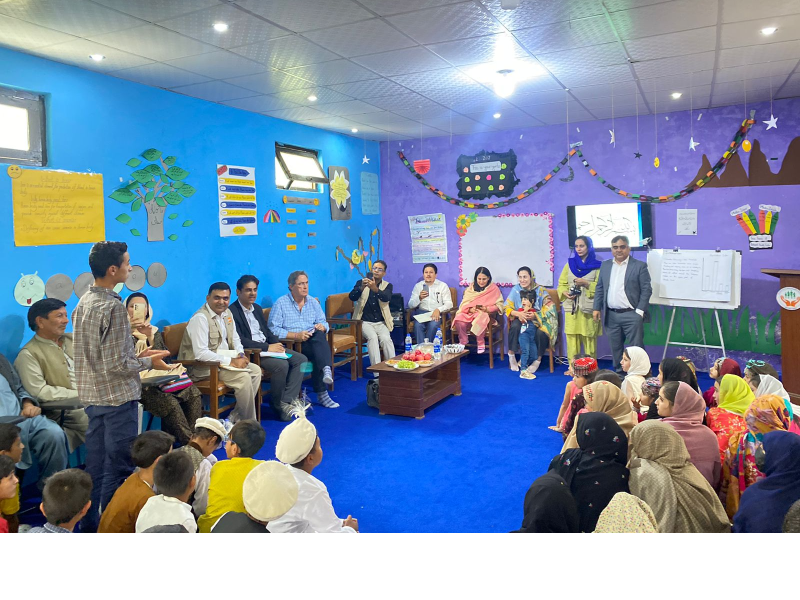
The "Sihaat Mand Khaandaan (SMK) Project: Health Families for Pakistan Through Accelerating Sexual Reproductive Health (SRH) and Family Planning (FP) Services" is generously funded by the Government of Canada. It extends beyond raising awareness about sexual and reproductive health rights and family planning; it also aims to harness the potential of adolescents and cultivate their fundamental life skills. To achieve this, the Aga Khan Rural Support Programme (AKRSP) has established welcoming spaces for adolescent boys and girls within their communities.
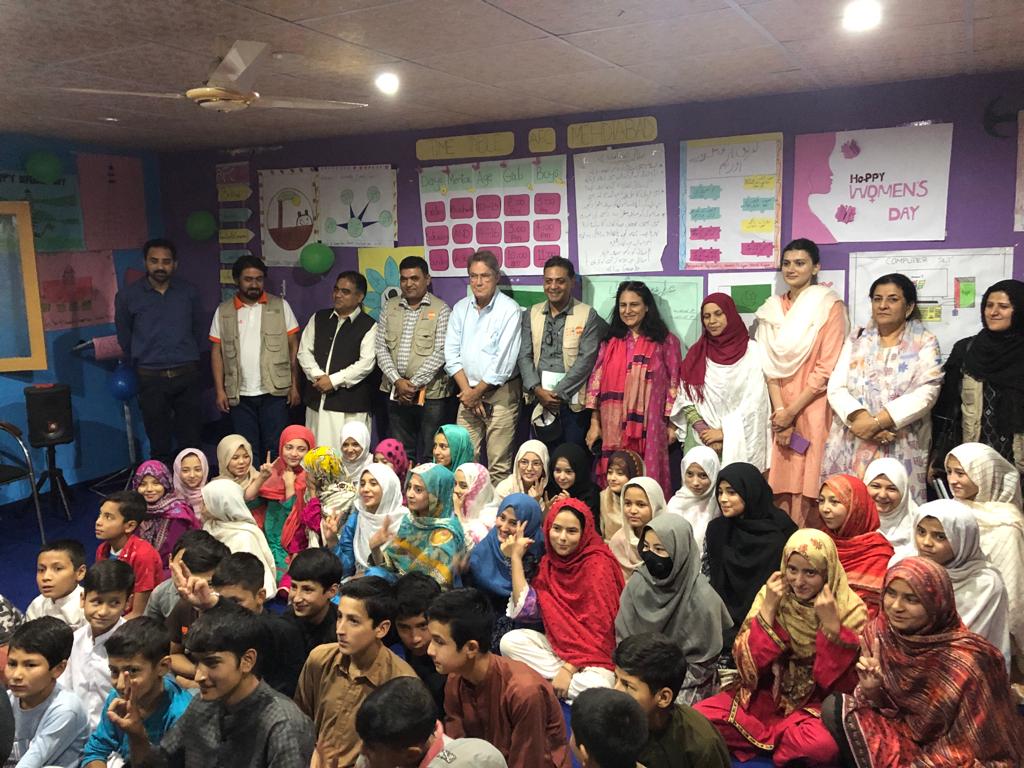
This rights-based intervention envisions a long-term impact that maximizes the likelihood of nurturing economically contributing, healthy youth in GBC. Under the project's auspices, 17 Adolescent Friendly Spaces (AFSs) have been established in the Baltistan Region. These spaces have enrolled a total of 968 adolescents, consisting of 495 girls and 473 boys, providing them with formal education, basic computer skills, and comprehensive training on Life Skills-Based Education (LSBE), Sexual and Reproductive Health (SRH), and Family Planning (FP). This holistic approach is shaping a brighter future for the youth of Gilgit-Baltistan, empowering them to thrive and contribute to their communities and beyond.
Innovative Cash Voucher Program Breaks Barriers to Reproductive Health Care in Remote Gilgit-Baltistan and Chitral
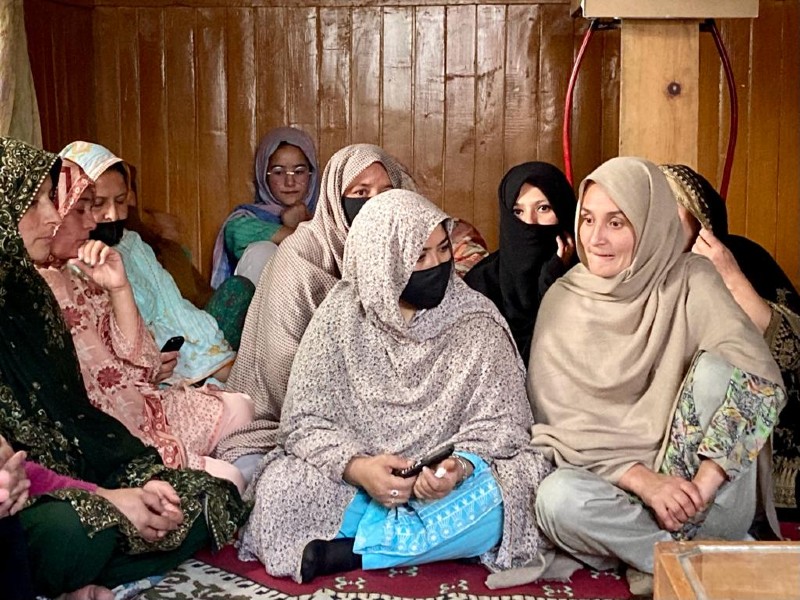
The Sihaat Mand Khaandaan (SMK) Project, implemented by the Aga Khan Rural Support Programme (AKRSP), with UNFPA Pakistan support is pioneering a transformative approach to tackle gender and social obstacles hindering access to reproductive health and family planning services in Gilgit-Baltistan and Chitral.
Through intensive focus group discussions, it was revealed that women, particularly those of reproductive age, face financial challenges due to limited mobility and control over resources. To address this, the project has introduced a Conditional Cash Voucher (CCV) model, targeting over 4,400 poor households in the region. This initiative aims to provide essential maternal and reproductive healthcare to high-risk cases, overcoming barriers like transportation challenges and limited access to financial resources.
Transforming healthcare: Civil Hospital, Gamba serves hundreds with enhanced reproductive health services
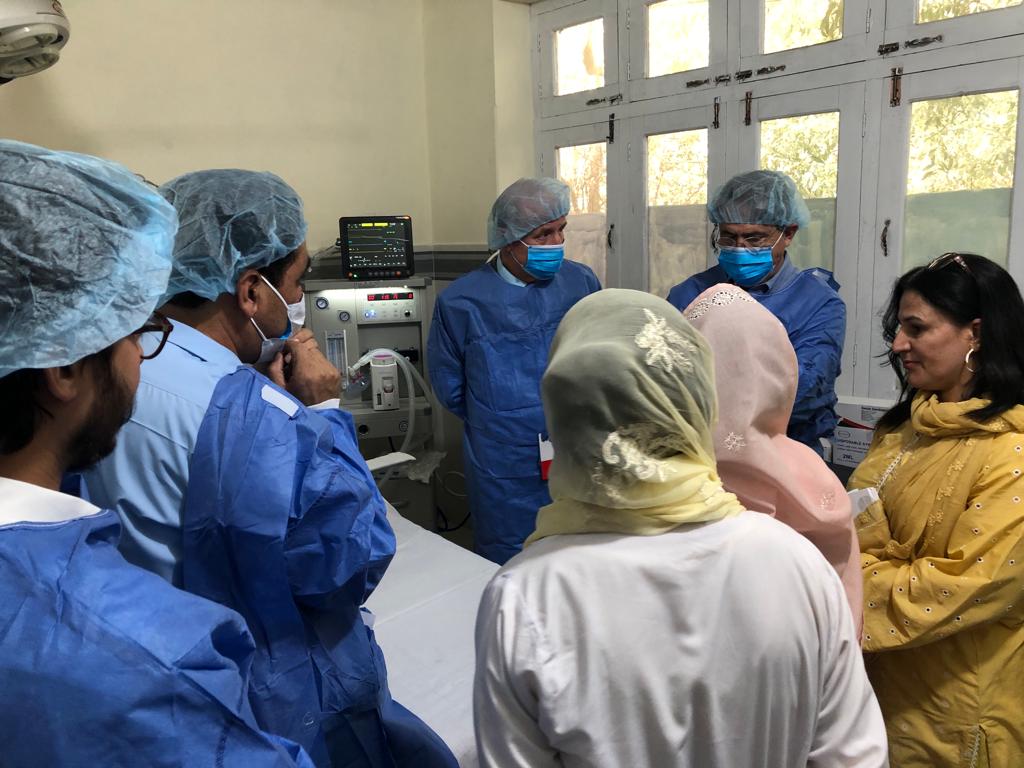
Civil Hospital, Gamba, stands as a beacon of healthcare in the region, catering to a diverse and thriving catchment population of 210,000 residents. Situated a short 35-minute car ride away from RHQ Skardu, it plays a pivotal role in delivering Maternal, Newborn, and Child Health (MNCH) services and is poised to expand its offerings to include Comprehensive Emergency Obstetric and Newborn Care (CEmONC) services soon.
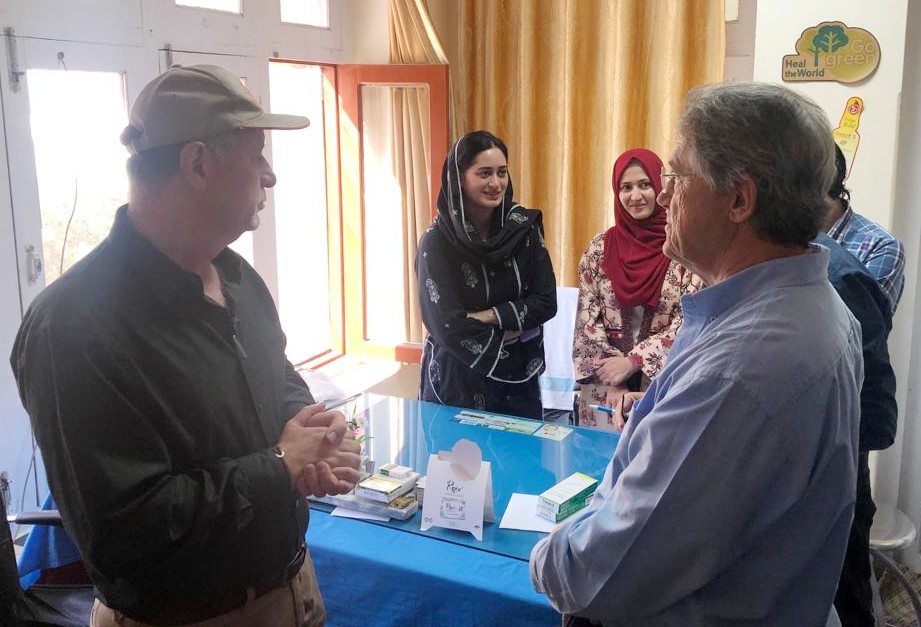
High Commission of Canada in Pakistan © UNFPA Pakistan
With a dedicated team of 49 professionals, including 30 technical experts and 19 non-technical staff members, this facility is well-prepared to address the healthcare needs of its community comprehensively. Two healthcare providers have received specialized training under the Sihaat Mand Khaandaan (SMK) Project funded by the Government of Canada, focusing on Family Planning (FP) approaches, practices, implant insertion, and removal.
Continuous supportive supervisory visits ensure that the highest standards of care are consistently maintained. Furthermore, the facility has been equipped with essential Sexual and Reproductive Health (SRH) equipment, kits, and supplies to strengthen both CEmONC and FP services, including the provision of Long-Acting Reversible Contraceptives (LARC). To ensure accessibility to a wide range of contraceptive options, FP commodities, such as implants, condoms, and injectables, are readily available.
Khaplu District Headquarters Hospital: a lifeline enhanced reproductive health services
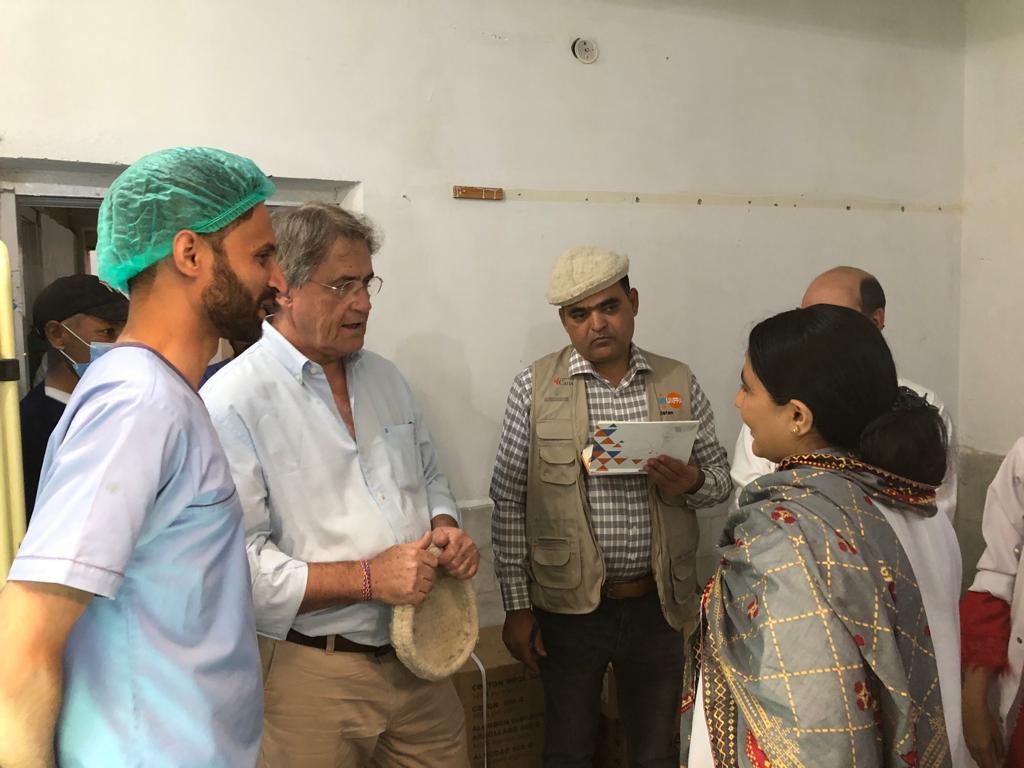
Nestled amidst the stunning landscapes of Khaplu, the district headquarters hospital stands as a beacon of hope and healthcare for a diverse population of 315,000 residents. This healthcare hub plays a vital role in providing essential Maternal, Newborn, and Child Health (MNCH) services and Family Planning (FP) support to the community.
With a dedicated team of 175 staff members, including 119 technical experts and 56 non-technical personnel, this facility is well-equipped to address the healthcare needs of its catchment population comprehensively.
The district headquarters hospital has extended its services to include Emergency Obstetric and Newborn Care (EmONC) and a range of FP services, including implant insertion, Post-Partum Family Planning (PPFP), and Clinical Breast Examination (CBE) screening.
Under the wings of the Sihaat Mand Khaandaan (SMK) Project, this facility has witnessed transformative interventions including outreach camps, healthcare provider training,
continuous supportive supervisory visits and accessibility to family planning commodities: Implants, condoms, and injectable contraceptives are readily available, providing the community with a variety of contraceptive choices.
Thanks to the interventions of the SMK Project, this facility continues to play a pivotal role in improving the healthcare landscape in the region, ensuring that maternal and child health needs are met and that family planning services are accessible to all who seek them.
Rural Health Centre, Shigar: empowering communities with maternal, neonatal and child health and family planning services
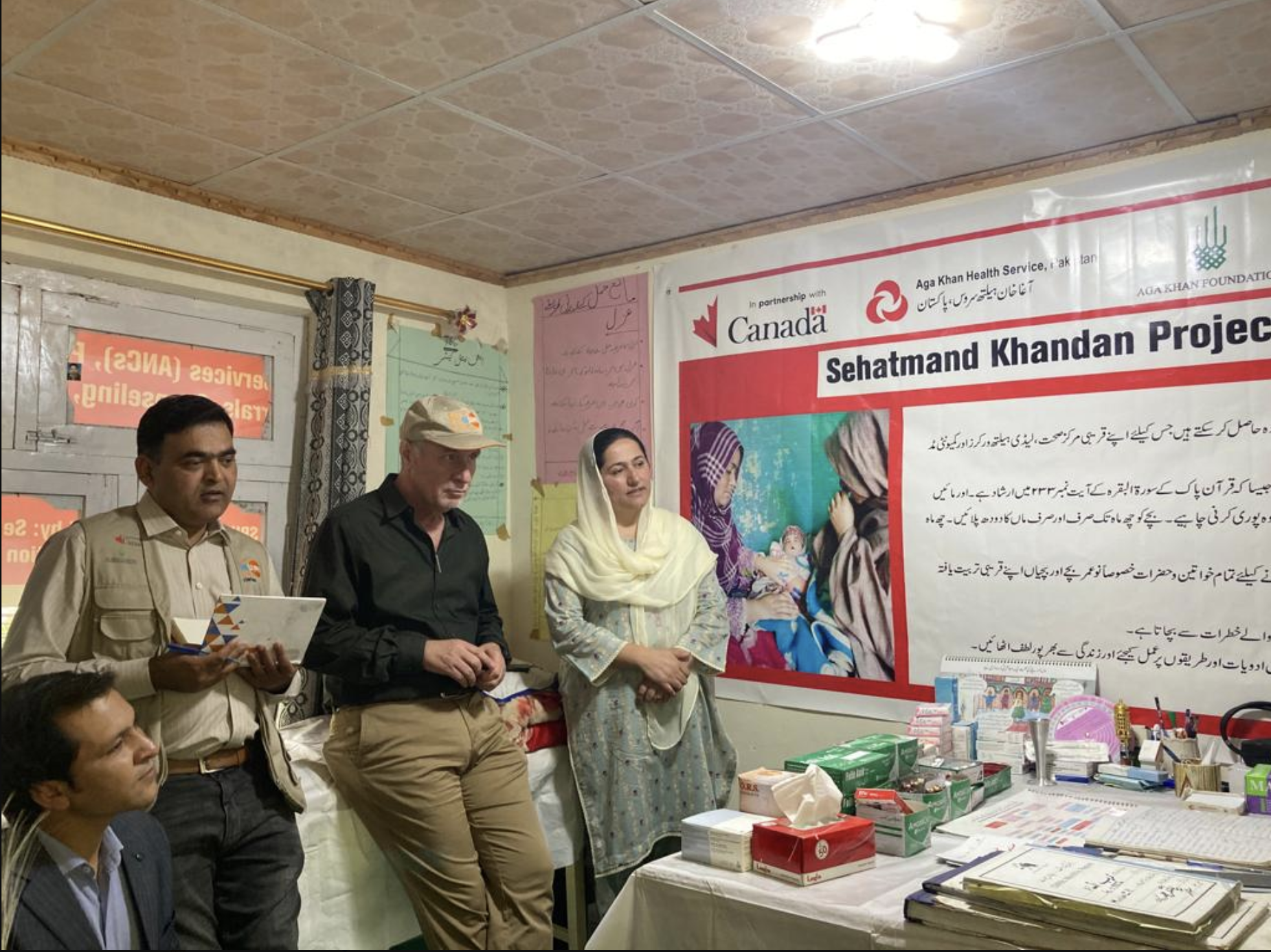
Shigar Rural Health Centre is a lifeline for the 83,577 residents of the district it serves. This healthcare facility is crucial in delivering Maternal, Newborn, and Child Health (MNCH) services, as well as Family Planning (FP) support to the community.
The center has a team of 39 dedicated staff members, including 23 technical experts and 16 non-technical personnel, who are well-equipped to address the healthcare needs of the people in the area.
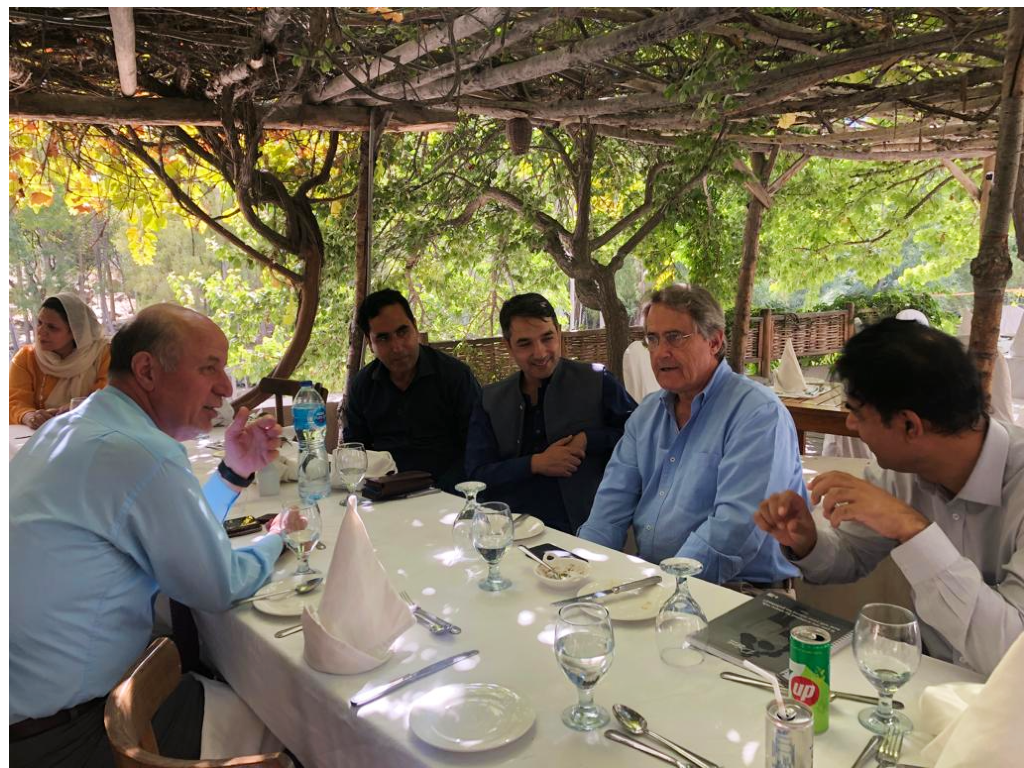
Thanks to the Sihaat Mand Khaandaan (SMK) Project, the facility has received essential Sexual and Reproductive Health (SRH) equipment, kits, and supplies, which have strengthened both EmONC and FP services. This includes the provision of Long-Acting Reversible Contraceptives (LARC).
The Rural Health Centre in Shigar not only offers vital MNCH services but also provides comprehensive Family Planning support. It continues to play a crucial role in improving the healthcare landscape in the region by ensuring that maternal and child health needs are met and that family planning services are accessible to all who seek them.
Promoting family planning and empowerment: UNFPA's Commitment to Gilgit Baltistan
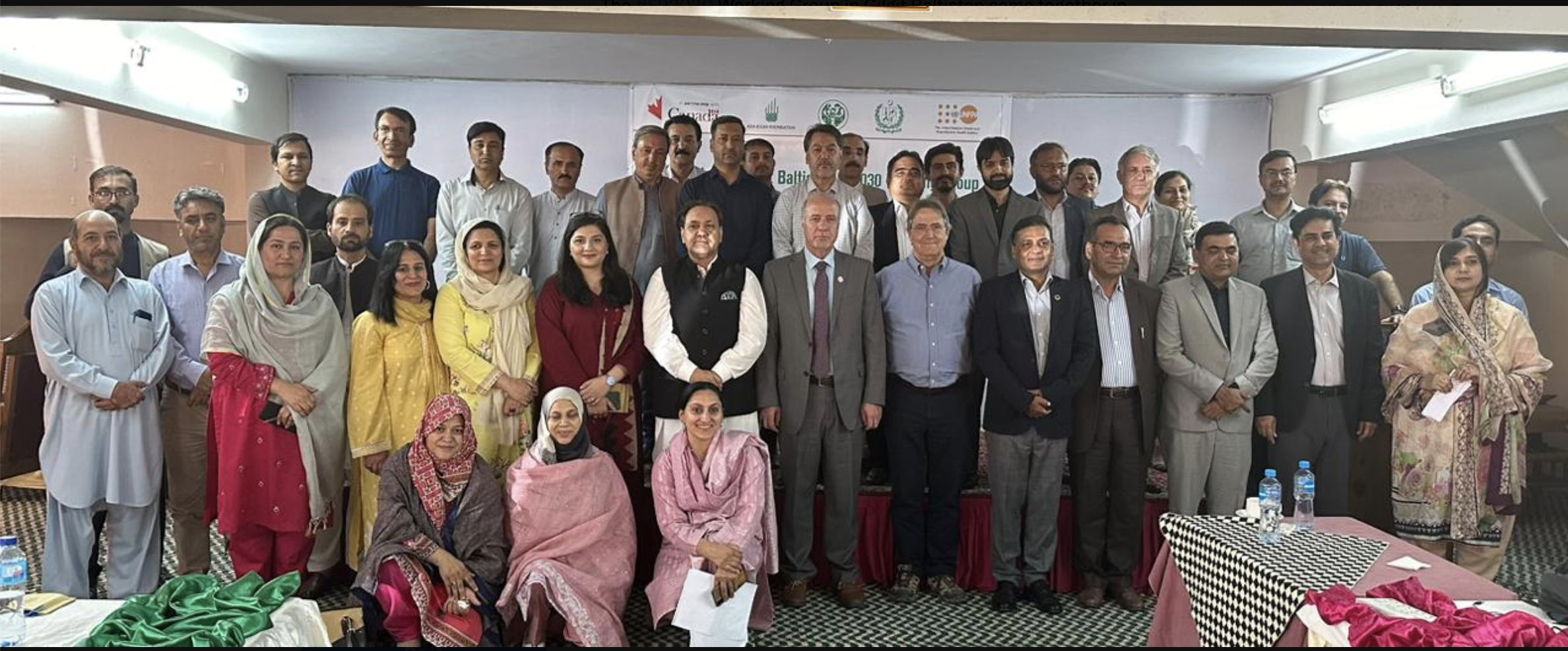
In a gathering of key stakeholders at the fourth meeting of the Gilgit Baltistan FP2030 working group, in collaboration with Global Affairs Canada and valued partners, a resounding commitment to reproductive health and family planning was reiterated. The meeting emphasized the critical nature of this issue, highlighting its intersection with health, poverty, education, climate change, environment, and economic conditions, and the need for a multi-sectoral approach to address these complex challenges.
UNFPA Pakistan Representative Dr. Luay Shabaneh expressed special acknowledgment to Global Affairs Canada for their unwavering support through the "Sihat Mand Khandaan (SMK)" project. This support allowed UNFPA to provide technical assistance and other support to Gilgit Baltistan (GB) through various programs, strengthening services in areas such as Emergency Obstetric and Newborn Care (EmONC), Family Planning (FP), Adolescent and Youth Sexual and Reproductive Health (AYSRH), and Gender-Based Violence (GBV).
UNFPA, in collaboration with the Government of GB and various departments through the 'SMK' project, achieved significant milestones in sexual and reproductive health, family planning, and gender-based violence awareness and services. These achievements included the development of guidelines, strengthening health facilities, ensuring the availability of family planning commodities, and actively engaging adolescents and youth.
UNFPA continues to support GB by drafting the Reproductive Health Rights (RHR) bill, establishing a Youth Resource Center to empower young people, and setting up a Multi-Sectoral Coordination Mechanism to address gender-based violence issues. UNFPA remains committed to supporting the Government in mandated areas, striving for a future where every individual's reproductive health and rights are protected and where sustainable development is a reality.
------Pilirani Semu-Banda

